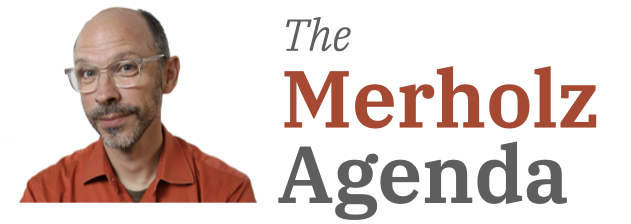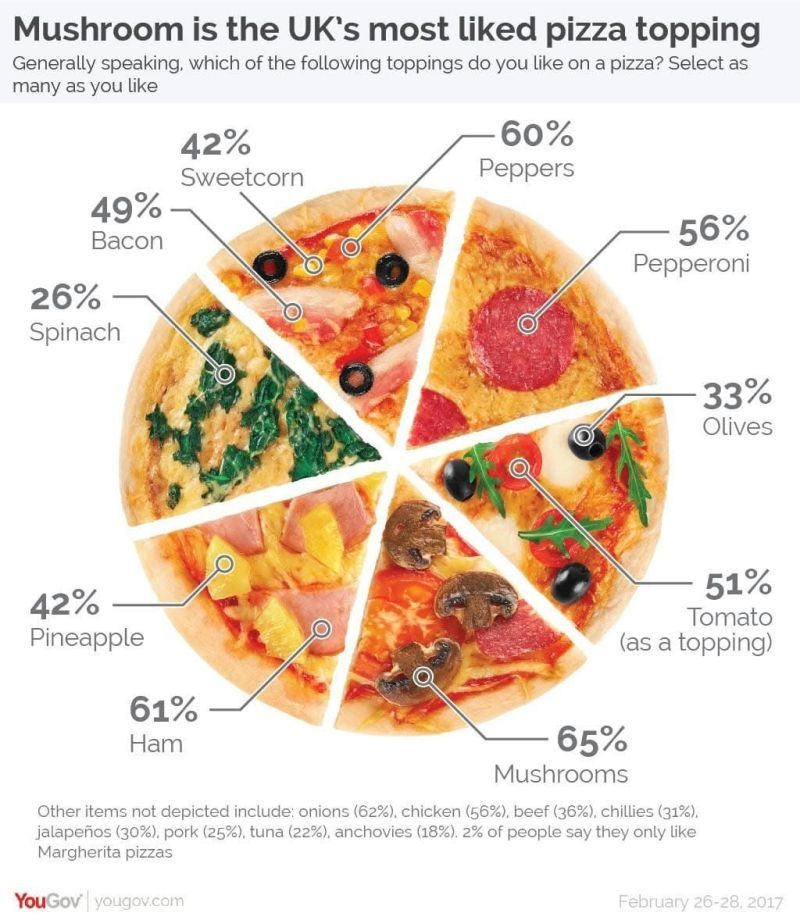[TMA] Empty Platitudes and a Focus on Skills, not Roles

From the sofa of Peter Merholz–
This will likely be the last Merholz Agenda for the year.
First though, a highly chaotic literal pie chart, which while almost 8 years old, was new to me:

“Disagree And Commit” often masks toxicity
Earlier this week, I posted on LinkedIn:
“Disagree and commit" is a toxic norm in an environment that lacks psychological safety. And any environment that feels the need to make “disagree and commit” explicit probably lacks psychological safety.
I’d never heard of a healthy org making “disagree and commit” an explicit value, while hearing about it in numerous unhealthy ones. And though many assented with my statement, I was surprised at how contentious it proved to be. I realized that a bunch of folks appear to believe it is helpful to articulate “disagree and commit” to encourage teams to not spiral and get stuck.
I guess where I’m coming from is, if you have authentic psychological safety, where people can push back (and disagree) without fear of retribution, you don’t need to make “disagree and commit” explicit, because it’s just assumed, alongside a bunch of other norms: the value of experimenting; that it’s okay to make mistakes (as long as you’re learning); candor and directness in communication; focusing on the work, not the person.
Alongside psychological safety, teams need clarity on decision-making. I typically advocate for teams to have a Lead, with that role being the final decision-maker. (I wrote a lengthy post about Team Leads a while back; it still holds.) That Lead may, in turn, delegate specific decisions to certain team members, but, generally, they’re the final arbiter, kind of like a director on a film set. I believe the work is stronger when an empowered, savvy person exercises judgment based on all inputs that have informed them.
Podcast recommendation
Jorge Arango’s “The Informed Life” is a direct ascendant of “Finding Our Way,” in that Jesse and I learned how to produce podcasts by talking to him. His most recent episodes are conversations with information architecture pioneer Peter Morville, and hearing Peter discuss his decision to leave IA consulting and pursue a new venture, with the purpose of alleviating suffering and increasing joy for all, was touching and provocative.
Orient on skills, not roles
In that discussion, Peter shares how challenging it is to talk to his adult children about their professional future, as it feels like things are moving so rapidly. And he mentions something I’ve been thinking about, the importance of focusing on skills:
One thing I’ve advised our daughters to do is to focus on skills over knowledge. Knowledge, you can read a book and feel like you’re an expert in the subject. But skills are something that take a long time to develop and then endure… And so, one of our daughters is really good at planning and managing and working with people to get things done. Our other daughter is extremely persuasive, right? So she could be in sales or fundraising and get people to open up their wallets.
And so I think it’s important to think about what are the skills that you’re developing in the work that you do, that are going to be a need in the future…
Career frameworks typically orient on roles. In our industry: UX (or Product) Designer; UX Researcher; Content Designer; Product Manager. That role orientation becomes a straitjacket, limiting people’s sense of their responsibilities, potential, and paths for growth.
In my work on career architectures, I orient on skills. Make it less about “who are you?” and more “what can you do?” This shift in focus frees people from getting caught up in matters of identity (“I’m a designer, so I do these things, and I don’t do these other things”) and encourages them to just contribute as they can.
And this skills orientation is what enables “future-proofing”—identifying and developing those practices that have endured and will continue to endure.
Design Leadership Masterclass
This past week I tore up, and then put back together, my Design Leadership Masterclass. It’s about 1/3rd all new material, and 100% new structure. I’ll introduce it at the Design Leadership Summit in Toronto on January 28th. And then I’ll schedule it for remote attendance in February or March. If you’re interested, please let me know, and I’ll make sure you hear about it.
Take care, have a remarkable, restful, and rejuvenating end of year!
—peter
Add a comment: